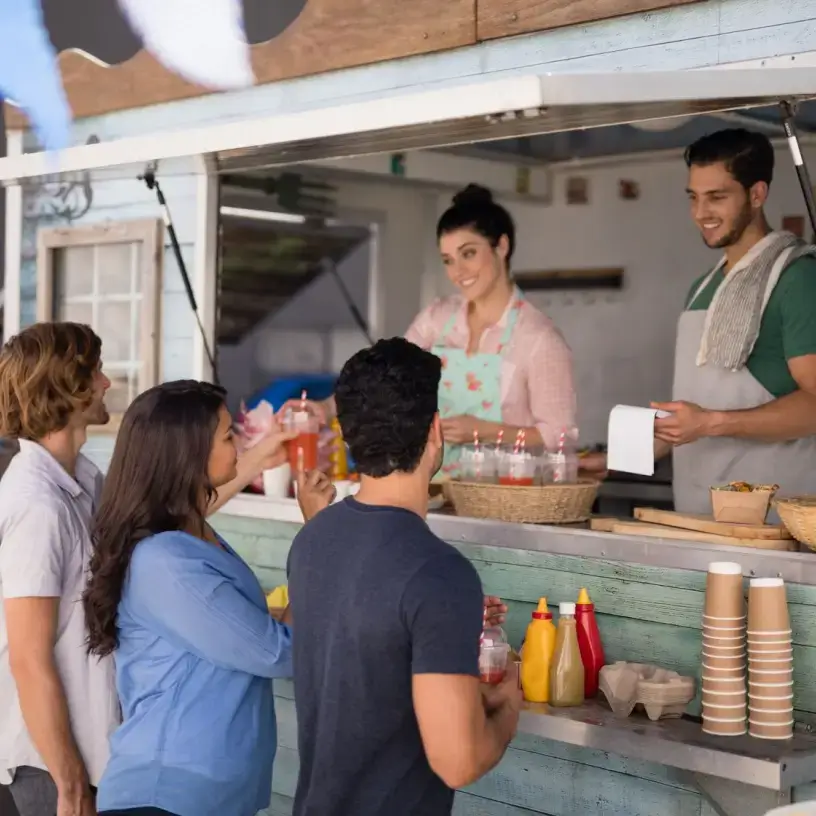A comprehensive business insurance for food trucks policy protects food truck business owners from a wide range of risks, regardless of the type of food they serve.
Public liability insurance
Public liability insurance covers you against claims of injury or property damage brought on by your food truck and is required by most councils, markets, and festivals. Additionally, it provides financial protection against the costs of settling claims, including medical expenses, repair costs, and legal fees if a customer or third party suffers injury due to your business activity.
Example: A customer slips and falls because of leak from your food truck, resulting in an injury claim.
Product liability insurance
Product liability insurance helps cover the business for any harm or damage caused by a defective or unsafe product it manufactures, sells, or distributes. It can safeguard your business’ liability against claims of food poisoning, allergic reactions or foreign objects found in your food.
Example: A customer suffers food poisoning from a contaminated meal you sold and sues your business.
Commercial vehicle insurance
This insurance covers your food truck against theft, fire, vandalism and accidents. It can help cover the cost of repairs or even replacement if your vehicle is damaged or stolen.
Example: If your food truck is in a crash and needs repairs, this insurance can help cover the cost.
Portable equipment insurance
Food trucks rely on expensive mobile equipment to operate. Portable equipment insurance can help cover the costs to replace or repair this equipment if they are stolen, lost or damaged.
Example: If your coffee machine or generator gets stolen overnight, this insurance helps you replace it quickly so you can get back on the road.







